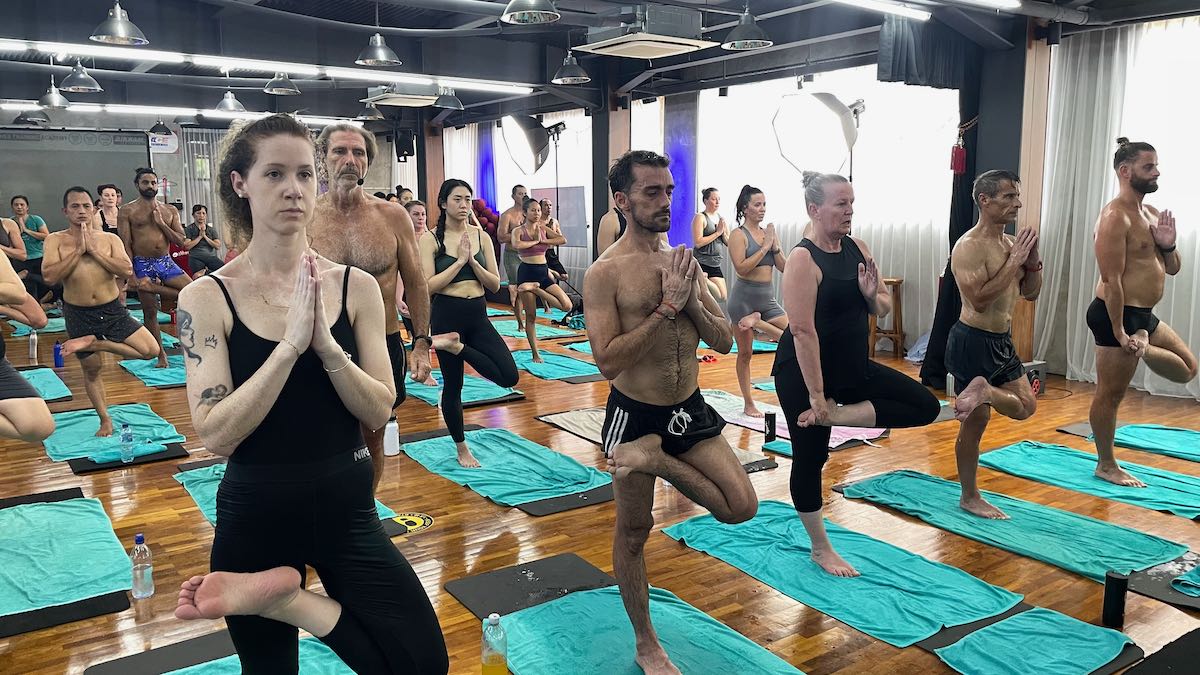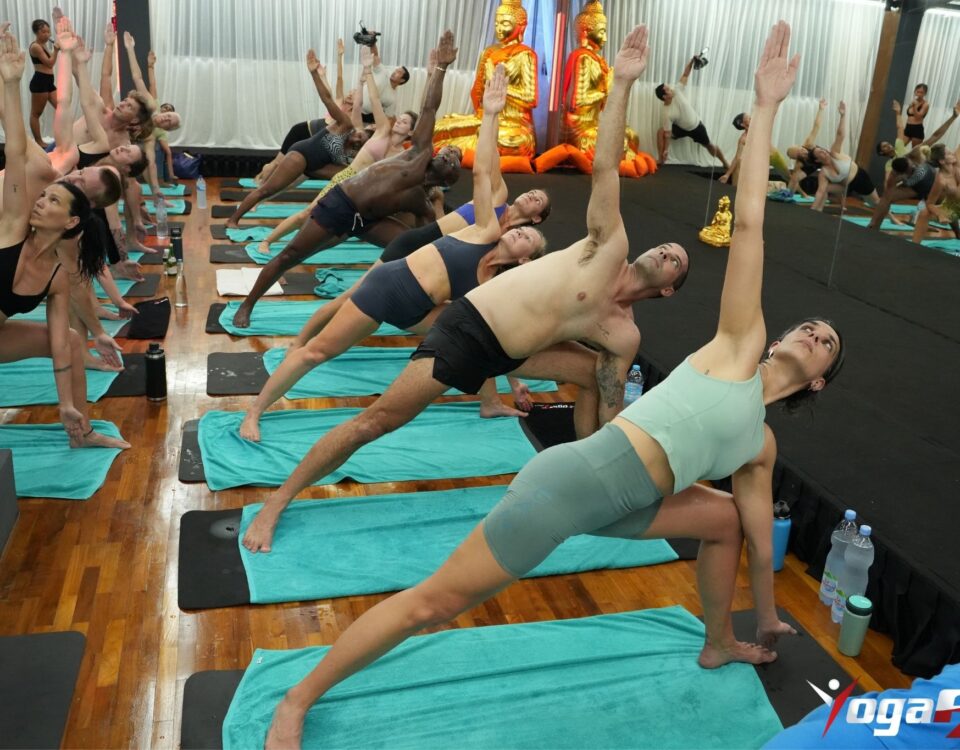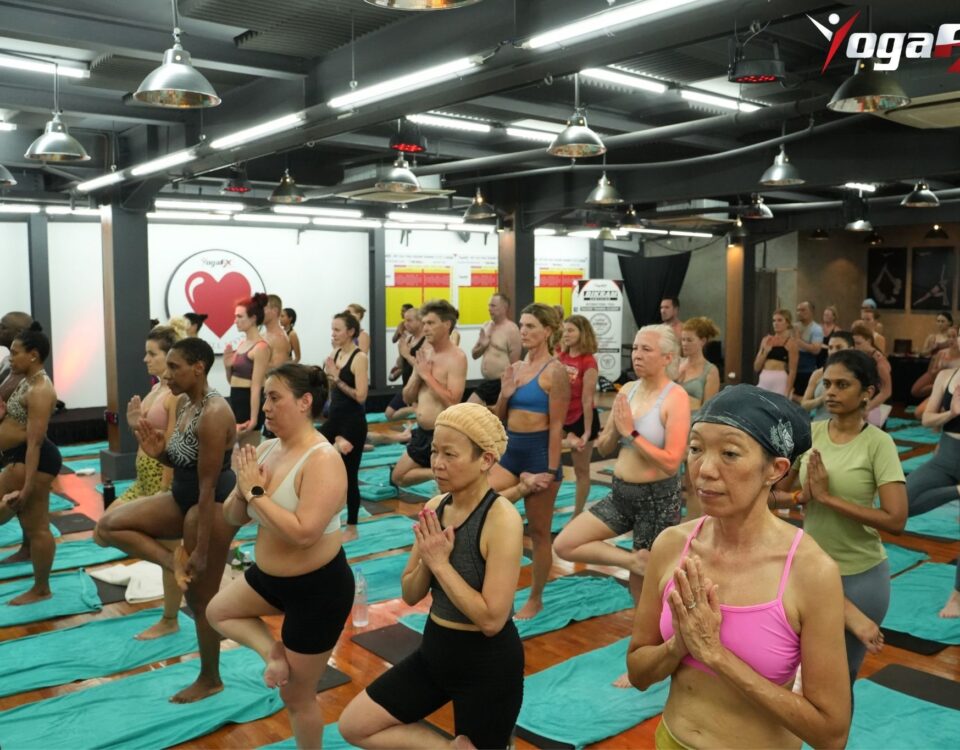
Prospective yoga teachers often find themselves at a crossroads when considering hot yoga teacher training. Critics argue that these programs emphasize physical exercise over spiritual depth, are costly, and pose health risks due to the heat. This skepticism can be unsettling, leaving many passionate individuals hesitant about investing in hot yoga teacher training.
Imagine dedicating time and money to a training program only to discover that it lacks the holistic approach you hoped for. Concerns about potential injuries in a heated environment add to the uncertainty. The idea of spending thousands of dollars on a program that might not provide the spiritual enrichment or career opportunities you seek is daunting. These fears can overshadow the potential benefits, leaving you questioning whether hot yoga teacher training is a wise choice.
Comprehensive Benefits of Hot Yoga Teacher Training
Harvard researchers have found that hot yoga can significantly reduce symptoms of depression. A study conducted by Massachusetts General Hospital, affiliated with Harvard Medical School, revealed that participants who engaged in heated yoga sessions experienced a 50% reduction in depressive symptoms.
The study included adults with moderate-to-severe depression who attended 90-minute Bikram yoga sessions in a 105°F room over an eight-week period. Nearly 44% of the participants achieved remission from their depression, compared to only 6.3% in the control group.
The study highlights that hot yoga combines three therapeutic components: mind-body connection, physical exercise, and heat. Each of these elements contributes to its powerful antidepressant effects.
The mind-body practice of yoga enhances mood, physical exercise reduces core symptoms of depression, and heat therapy has shown promising mental health benefits.
The positive effects were observed even in participants who attended fewer sessions than prescribed, indicating that even minimal participation in hot yoga can be beneficial.
The findings suggest that hot yoga could be a viable, non-medication-based treatment option for depression, providing additional physical benefits.
Future research aims to differentiate the specific contributions of heat and yoga to these observed effects and compare hot yoga to other treatments for depression.
Diverse Employment Opportunities
Hot yoga studios often seek instructors trained specifically in hot yoga, recognizing the specialized skills required to teach in a heated environment. This demand ensures that certified hot yoga teachers have ample job opportunities, providing a clear path to a fulfilling career.
Joining the right professional community is crucial for career growth and recognition. Organizations like Yoga Alliance provide internationally recognized certification, enhancing a teacher’s credibility and employability.
Not all hot yoga schools offer Yoga Alliance certification, but programs like YogaFX Hybrid+ Hot Yoga Teacher Training ensure that graduates receive this valuable accreditation.
This recognition opens doors to teaching opportunities worldwide and connects teachers to a global network of professionals.
Holistic Approach
Contrary to the belief that hot yoga focuses solely on physical exercise, quality training programs integrate meditation, pranayama (breathing exercises), and yoga philosophy.
This comprehensive approach ensures that trainees receive a balanced education that includes spiritual and mental well-being.
Programs like YogaFX Hybrid+ Hot Yoga Teacher Training, for instance, offer a blend of online and in-person training, covering both the physical and philosophical aspects of yoga.
Health Benefits and Safety Measures
While concerns about injuries in hot yoga exist, proper training emphasizes safety and alignment, significantly reducing the risk of harm. Certified instructors are trained to guide students safely, ensuring they practice mindfully and with proper technique. The heat can enhance flexibility and promote detoxification, benefiting cardiovascular health when practiced correctly.
Research Evidence:
- A study published in the Journal of Physical Therapy Science found that practicing hot yoga can improve cardiovascular health and flexibility, highlighting the safety and benefits when performed under proper guidance (Laukkanen et al., 2018).
- Another study in the Journal of Alternative and Complementary Medicine indicated that hot yoga could significantly reduce stress and anxiety levels, contributing to overall mental health improvements (Hewett et al., 2018).
Cost-Effectiveness and Value
The investment in hot yoga teacher training is justified by the specialized environment, comprehensive curriculum, and high demand for qualified instructors. These programs offer intensive and immersive experiences, equipping trainees with the skills and knowledge needed to excel. The return on investment can be quickly realized through teaching opportunities and the growing popularity of hot yoga.
Mental Health Benefits
Research, including studies by Dr. Maren Nyer, highlights the significant mental health benefits of hot yoga. It can reduce symptoms of depression, anxiety, and stress, providing a powerful tool for improving mental well-being. The structured environment of hot yoga classes fosters a sense of community and support, enhancing its positive impact on mental health.
Research Evidence:
- Dr. Maren Nyer’s study published in The Journal of Psychiatric Practice demonstrated that hot yoga significantly reduces symptoms of depression and anxiety, offering a viable complementary therapy for mental health (Nyer et al., 2017).
Professional Development and Personal Growth
Hot yoga teacher training offers more than just the ability to teach. It provides personal growth opportunities, enhancing self-awareness, discipline, and resilience. Trainees often report transformative experiences that deepen their understanding of yoga and themselves.
Additionally, being part of an internationally recognized community like Yoga Alliance further supports professional development. Programs like YogaFX, which offer Yoga Alliance certification, ensure that graduates are well-prepared and connected to a global network of professionals, enhancing their career prospects and growth opportunities.
Conclusion
Hot yoga teacher training programs offer a comprehensive and enriching experience for those passionate about this practice. They address employment concerns, provide a holistic approach to yoga, emphasize health and safety, and justify their cost through the value of the training provided.
Additionally, the mental health benefits and opportunities for personal growth make these programs a worthwhile investment. Prospective instructors should seek reputable programs that offer a balanced and thorough education, ensuring they gain the full benefits of this rewarding career path.
Rather than avoiding hot yoga teacher trainings, individuals should embrace the opportunity to grow, learn, and contribute to the vibrant community of hot yoga practitioners.
References:
- Laukkanen, J. A., et al. (2018). “Hot Yoga and Its Effect on Cardiovascular Health.” Journal of Physical Therapy Science.
- Hewett, Z. L., et al. (2018). “The Benefits of Hot Yoga on Mental Health.” Journal of Alternative and Complementary Medicine.
- Nyer, M., et al. (2017). “Hot Yoga as a Complementary Therapy for Depression and Anxiety.” The Journal of Psychiatric Practice.


